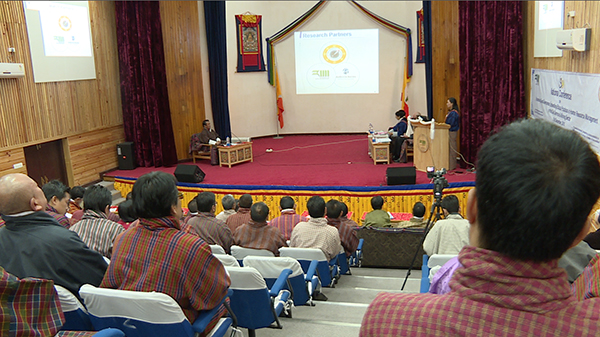 The existence of favouritism in the civil service had a huge influence in nomination and selection for short-term ex-country training, and transfer procedures, a research by the Anti-Corruption Commission (ACC), says. Over 40 percent from over 1,300 civil servants agree that favouritism exists in these two human resource management processes.
The existence of favouritism in the civil service had a huge influence in nomination and selection for short-term ex-country training, and transfer procedures, a research by the Anti-Corruption Commission (ACC), says. Over 40 percent from over 1,300 civil servants agree that favouritism exists in these two human resource management processes.
The research found there is a lack of transparency in nominations for the ex-country training in the civil service. The procedures involved selecting irrelevant candidates. There were some cases of self-nomination by the organisation’s head and some availing training without routing it through the human resource committee.
According to the research findings, civil servants having connections with the officials at human resource decision-making level at the ministries had more chances of getting transfers.
With experienced civil servants transferred, dzongkhags mostly got the new recruits which hampered the service delivery.
“There needs to be a robust and strong whistle-blowing system which needs to be instituted in Royal Civil Service Commission,” said ACC’s Deputy Chief Integrity Promotion Officer, Namgay. In order to do that, he said, they need a policy on whistle-blowing system which includes protecting whistle-blowers.
Their second recommendation is to enhance the current system of conflict of interest declaration.
ACC is also recommending the decentralisation of nomination and selection for training opportunities.
Definition of short-term training and relevance of the training against the job requirement in Bhutan Civil Service Rules and Regulation 2012 needs to be revisited, as well.
The recommendations say there is a need to develop guidelines for effective coordination between the ministries, dzongkhags, and thromdes, in terms of transfer.
Royal Civil Service Commission’s Chairperson, Dasho Karma Tshiteem said their recommendations also include the division of responsibility between working agency and parent agency. “Our philosophy is working agency should have the main say. I think we should change the paradigm shift in way we look at what short-term training is for. And then make sure that short term training is converted into system, 100 hours per person per year, and make sure they get it as a system.”
The Prime Minister, Tshering Tobgay said the recommendations from the research findings will be given importance and attention it deserves. He said the government will review the recommendations and discuss with ACC and the RCSC.










